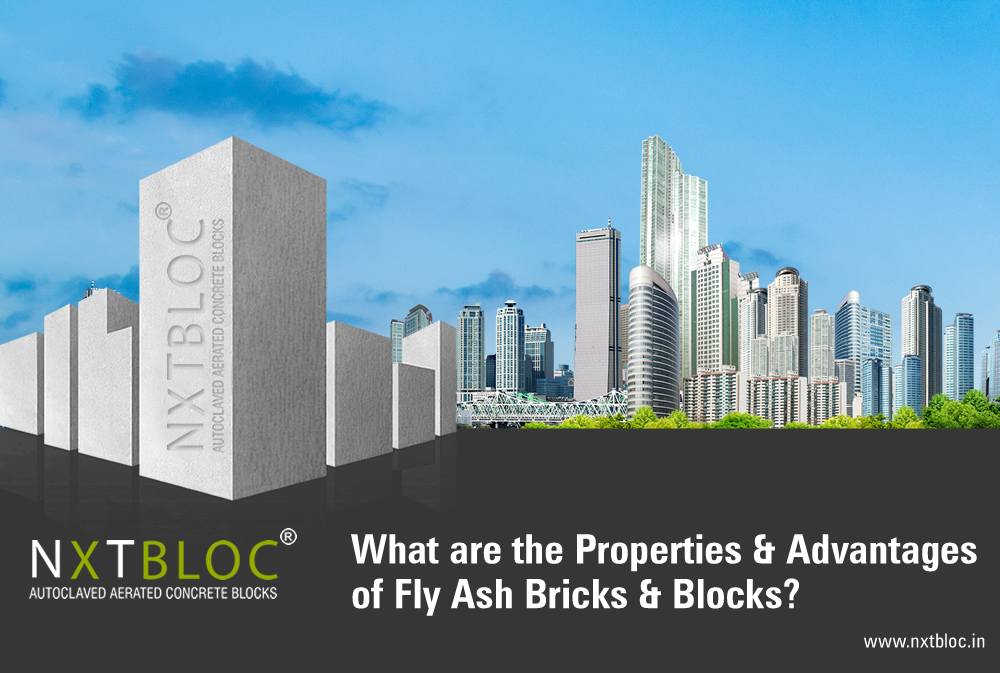Fly ash bricks are absolutely strong and durable and last longer than any other building material in the industry. In this article, we will learn about what are the properties & advantages of fly ash bricks & blocks.
What is Fly Ash?
Fly ash is obtained as waste from modern thermal power plants, where a mixture of air and coal dust is burned. Fly ash is a finely dispersed residue resulting from the combustion of ground or powdered bituminous coal or sub-bituminous coals such as lignite and carried by the flue gases of pulverized coal or lignite-fired boilers.
It is a by-product of many thermal power plants and other industries that use pulverized coal or lignite as a heat source for boilers.
Types of Fly Ash
There are two common types of fly ash: Class C and Class F. Class F fly ash contain particles coated with what looks like molten glass. This greatly reduces the risk of expansion due to sulfate exposure, which can occur in fertilized soils or near coastal areas. Class F usually has a low calcium content and a carbon content of less than 5%, but sometimes even 10%.
Class C fly ash is also resistant to expansion due to chemical attacks. It has a higher percentage of calcium oxide than Class F and is commonly used for structural concrete. Class C fly ash typically contains less than 2% calcium in carbon fly ash.
What are the Properties of Fly Ash Blocks & Bricks?
- Fly ash blocks are poured into molds, which are further molded evenly in a uniform shape.
- Fly ash blocks have an extremely smooth surface so no mortar is needed on the blocks to create a smooth surface.
- Fly ash blocks are lightweight and less bulky than clay blocks.
- Fly ash concrete is insensitive to corrosive and sulphates attacks.
- The shrinking of concrete from fly ash is extremely low. The use of fly ash provides durable and superior functionality, strength and finish.
What are the Advantages of Fly Ash Blocks and Bricks?
- Fly ash bricks are light in weight and therefore suitable for multi-story buildings, as the height of the buildings increases the stresses and strains in the foundation and structure.
- During construction, less mortar is required, in addition, the operation of the machine requires less labor.
- The use of fly ash is environmentally friendly as industrial waste is effectively used to create quality building materials.
- Fly ash has very small particles which make the concrete very dense and reduce the permeability of the concrete. This can add more strength to the building.
- Fly ash bricks absorb less heat and are better suited to the Indian climate than clay bricks.
- The concrete mix releases a very low heat of hydration which prevents thermal cracking.
- Fly ash concrete is resistant to acids and sulfates.
- Due to its high strength, it practically does not break during transportation and operation.
- Water leakage through fly ash bricks is reduced due to less water penetration.
- The compressive strength of fly ash is very high and they are less porous. They absorb less water and also reduce overall costs.
- Fly ash brick production does not require fossil fuels, so there are no greenhouse gas emissions.
NXTBloc is a venture of Mohit Industries Surat, Gujarat and is working hard to create a greener India and with our machines, we aim to promote green technology in the construction industry. We have successfully mastered the art of making bricks and manufacturing AAC blocks using 70-80% fly ash.
